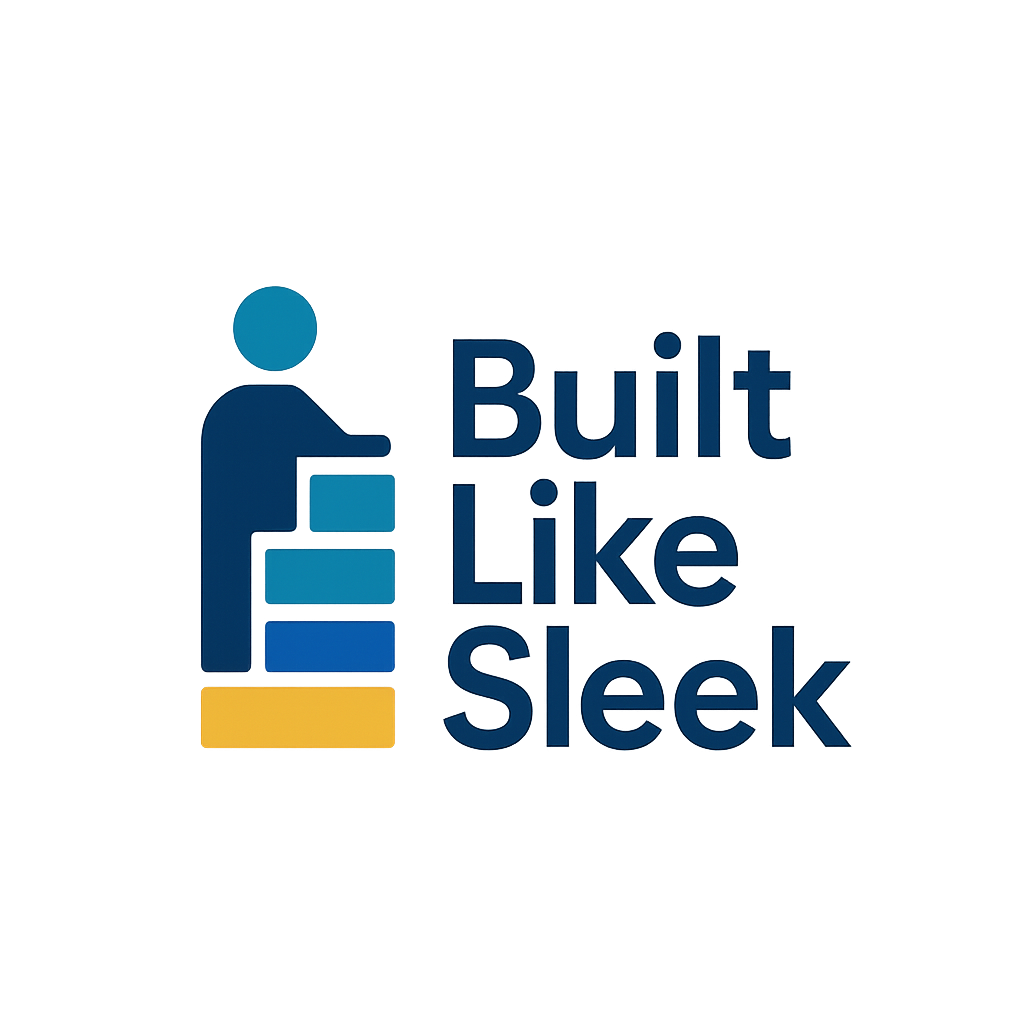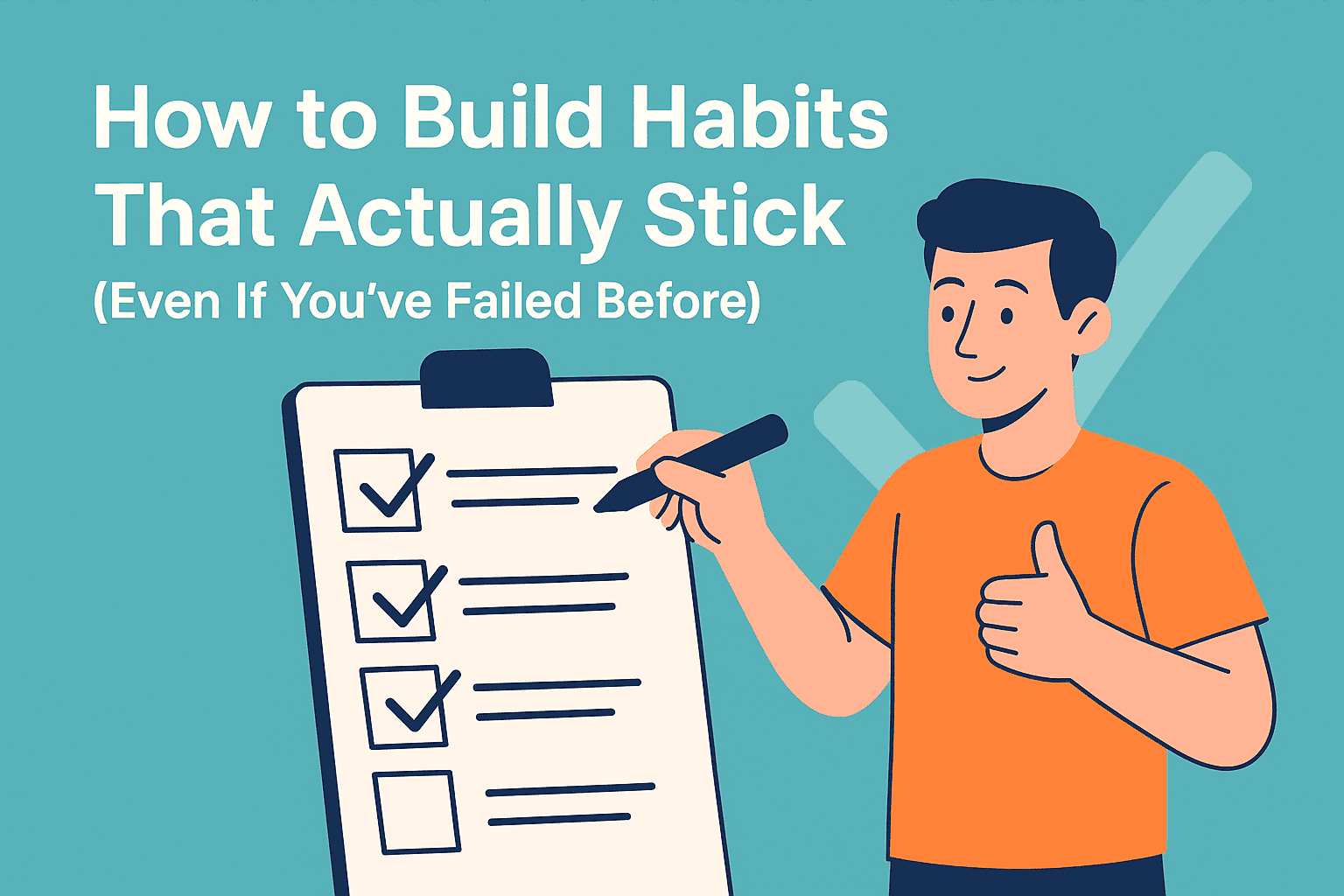A few years ago, I decided it was time to get serious about creating content. I sat down with lofty goals, a detailed plan, and an energy drink, ready to conquer the world. For the first week, I was unstoppable, cranking out posts every day. But by the second week, my enthusiasm fizzled. I skipped one day, then two. Before I knew it, an entire month went by without creating anything.
Sound familiar?
Most people experience this same cycle because they rely on motivation alone, try to tackle too much too soon, or lack a clear, sustainable system. This guide is here to change that. You’ll learn proven, practical strategies to build habits that stick—no fluff, no shortcuts, just disciplined and effective methods for real results.
Let’s cut through the BS and build something that lasts.
Why Habits Matter More Than Motivation
Here’s the truth: motivation is a terrible foundation for lasting change. It’s an emotion, and emotions are inconsistent. One day you’re fired up, the next you’re exhausted. Building your goals on motivation is like building a house on quicksand.
Habits, on the other hand, are systems. They work even when you don’t feel like it.
The Compounding Effect of Small Daily Actions
Success is rarely about making massive, sweeping changes overnight. Instead, it’s the result of small, consistent actions repeated over time. Each seemingly minor habit you form—a 10-minute daily walk, drinking more water, reading two pages of a book—compounds into substantial progress. Over weeks, months, and years, these small efforts create noticeable transformations.
The power lies in the consistency, not the size of the action.
Think about it this way: if you improve by just 1% each day, you’ll be 37 times better by the end of the year. But if you decline by 1% each day, you’ll decline nearly to zero. Small changes matter more than you think.
How Habits Shape Identity and Long-Term Success
Your habits are more than just actions—they’re statements of identity. When you align your daily habits with the person you want to become, you reinforce that identity. For example, every time you prioritize eating healthy meals, you’re affirming, “I am someone who cares for my health.” Over time, these micro-decisions not only help you achieve your goals but solidify your overall growth and long-term success.
Every action you take is a vote for the type of person you wish to become. No single instance will transform your beliefs, but as the votes build up, so does the evidence of your new identity.
Real-Life Examples of Habits in Action
Consider how small habits drive success in different areas of life:
- Health: A simple habit of prepping meals ahead of time can drastically reduce unhealthy eating.
- Business: Dedicating 30 minutes each morning to focused work can yield massive productivity gains over time.
- Finances: Automating monthly savings helps you build wealth without even thinking about it.
- Appearance: A consistent skincare routine shows visible results when maintained regularly.
A Key Concept from Atomic Habits
James Clear, author of Atomic Habits, emphasizes the importance of systems over goals. He states, “You do not rise to the level of your goals. You fall to the level of your systems.” This means success doesn’t come from setting grand goals alone; it comes from designing systems that make success inevitable.
By focusing on building strong, repeatable systems, you guarantee progress even on days when motivation is low.
Why You’ve Failed Before
Let’s be honest about why your previous attempts didn’t work. Understanding these failure points is crucial for building a system that actually sticks.
Relying on Motivation or Willpower
One of the primary reasons many people fail to stick to their goals is their reliance on motivation or willpower alone. While motivation can provide a powerful initial push, it is inherently inconsistent and often fades over time. Willpower is a finite resource that gets depleted throughout the day.
You can’t discipline your way out of a bad system.
Going Too Big, Too Fast
For instance, attempting to make a drastic lifestyle change like exercising every day without building up gradually can quickly lead to burnout. Your brain resists dramatic changes because they feel threatening. Start small, and your brain won’t sound the alarm bells.
No System or Tracking
Without a structured system or consistent tracking, it becomes nearly impossible to measure progress or identify areas for improvement. You need feedback loops to know if you’re moving in the right direction.
Lack of Clarity or Emotional Attachment
Additionally, a lack of clarity about why the goal matters or an absence of emotional connection to the desired outcome can sap your resolve when challenges arise. If you don’t know why you’re doing something, you’ll quit the moment it gets difficult.
A Personal Example
When I decided to stop gaming and shift my focus to more productive tasks, the initial temptation to continue wasn’t easy to overcome. Gaming had become a habit and an escape, offering instant gratification and endless entertainment. However, I realized the time I spent gaming could be invested in learning new skills or working towards meaningful goals.
To take control, I started by setting clear boundaries, like limiting my gaming hours and replacing that time with specific activities such as reading or exercising. I also reminded myself of the deeper motivation behind this change—to grow personally and professionally. By keeping my purpose front and center and tracking my daily progress, I was able to stay disciplined and gradually transform my habits for the better.
The 5-Step System to Build Habits That Stick
Here’s the system that works. Follow these five steps, and you’ll build habits that last.
1. Start Stupid Small
The biggest mistake people make is starting too big. They want to work out for an hour, meditate for 30 minutes, or read for an hour every day. That’s a recipe for failure.
Instead, use the “two-minute rule”: when you start a new habit, it should take less than two minutes to do.
Want to start working out? Just put on gym clothes at first. That’s it. Don’t even go to the gym. Want to start reading? Read one page. Want to start meditating? Sit quietly for two minutes.
This sounds ridiculously simple, but it works because success comes from lowering the barrier. The goal isn’t to achieve your desired outcome immediately; it’s to prove to yourself that you’re the type of person who does this thing.
Once putting on gym clothes becomes automatic, you can expand to walking around the block. Once that becomes automatic, you can expand to a full workout. But not before.
2. Stack It to an Existing Routine
Your brain loves patterns and established routines. You can use this to your advantage with habit stacking.
The formula is simple: “After I [existing habit], I will [new habit].”
Examples:
- After I brush my teeth, I will do affirmations for two minutes.
- After I pour my morning coffee, I will write down three things I’m grateful for.
- After I sit down at my desk, I will write one sentence for my book.
This helps trigger the new habit naturally because you’re linking it to something you already do consistently. You’re not relying on remembering to do something new; you’re piggybacking on an existing system.
3. Track Progress Visually
What gets measured gets managed. The power of habit trackers or streaks cannot be overstated. Whether you use a calendar, apps, or journals, visual tracking provides immediate feedback and motivation.
I personally use a simple paper calendar where I mark an X for each day I complete my habit. Seeing a chain of X’s builds momentum, and not wanting to break the chain keeps me going on tough days.
The key is to track the habit, not the outcome. Don’t track “lost 2 pounds”—track “went to the gym.” Don’t track “made $1,000″—track “sent 10 sales emails.” Focus on the inputs, not the outputs.
4. Make It Satisfying
Your brain is wired to repeat behaviors that feel good. Use positive reinforcement to make your habits satisfying.
This can be as simple as celebrating small wins. After you complete your habit, say “Yes!” or give yourself a mental high-five. It sounds cheesy, but it works.
You can also tie your habit to something enjoyable. Listen to your favorite podcast only while working out. Have your favorite tea only while reading.
More importantly, use identity shifts. Instead of saying “I want to lose weight,” say “I’m the kind of person who takes care of their health.” Instead of “I want to write a book,” say “I’m a writer.”
Don’t rely on guilt or punishment. Negative emotions create resistance, not lasting change.
5. Anticipate Failure & Recommit
Here’s the reality: you will fail. You’ll miss days. You’ll get off track. This isn’t a character flaw—it’s human nature.
The key is to plan for off-days or slip-ups. Have a comeback strategy ready.
Follow the “never miss twice” rule. Missing once is an accident. Missing twice is the start of a new habit (the habit of not doing your habit).
Have a system to get back on track. This could be a support group, accountability buddy, or simply a commitment to start again the next day without judgment.
Progress isn’t about perfection. It’s about getting back up faster each time you fall.
Advanced Tips for Long-Term Habit Mastery
Once you’ve mastered the basics, these advanced strategies will help you build a comprehensive system.
Habit Batching
Instead of spreading habits throughout the day, batch similar habits together. For example, do all your morning habits in sequence: wake up, make bed, brush teeth, meditate, journal, exercise. This creates a powerful routine that becomes automatic.
Match Energy to Timing
Pay attention to your natural energy patterns. If you’re a morning person, schedule your most important habits then. If you’re a night owl, work with your natural rhythms, not against them.
Environmental Design
Make good habits obvious and bad habits invisible. If you want to eat healthier, put fruit on the counter and hide junk food. If you want to read more, put books where you’ll see them and put your phone in another room.
Use Technology Wisely
Apps and reminders can be helpful, but don’t rely on them completely. Use them as training wheels while you build the habit, then gradually reduce dependence as the habit becomes automatic.
Real-Life Examples From My Journey
Let me share some habits I’ve built successfully and others that failed, so you can learn from both.
Successful Habits
Daily writing: I started by writing just one sentence every morning. Now I write 500-1000 words daily. The key was starting small and being consistent.
Exercise: I began by just putting on workout clothes. Then walking around the block. Now I work out 5 days a week. The progression happened naturally.
Reading: I started with one page before bed. Now I read for 30 minutes every night. Building this habit has enriched my knowledge and helped me wind down after long days. The key was finding books I truly enjoyed and creating a ritual around reading.
Habits That Didn’t Stick
Meditation: I tried meditating for 10 minutes every morning, but I struggled to stay consistent. The lack of a clear trigger to incorporate it into my routine made it difficult to sustain.
Waking up at 5 AM: Although I admired the idea of starting my day early, I found it unsustainable without compromising my sleep schedule. Prioritizing rest ultimately proved more beneficial for my energy and focus.
By analyzing what worked and what didn’t, I’ve come to understand that every habit starts small, grows with discipline, and needs to align with personal goals and lifestyle.
Consistency over Perfection: One of the most important lessons I’ve learned is that consistency always outweighs intensity. Small, regular efforts compound over time and lead to meaningful progress, whereas bursts of enthusiasm followed by long gaps yield little to no results. By focusing on creating sustainable habits instead of chasing perfection, I’ve built a workflow and lifestyle that continuously supports my goals without causing burnout.
The Power of Reflection: Taking time to reflect on habits and outcomes is non-negotiable. Reflection helps identify what’s working, what needs adjustment, and where time might be wasted. Through disciplined evaluation, I’ve gained clarity on prioritizing actions that deliver value while cutting out distractions or ineffective routines. This cycle of reflection and refinement ensures I’m always moving forward with intention.
Free Tools & Resources
Achieving consistent progress doesn’t always require investing in expensive tools or programs. There are countless free resources available to help streamline habits, organize priorities, and provide valuable insights.
For time management, tools like Google Calendar and Trello offer simple and effective ways to plan daily tasks and long-term goals. If reflection and journaling are priorities, apps like Notion or free printable templates can keep everything in one place.
Staying on top of fitness goals is easier with apps like MyFitnessPal, while free guided meditations like those offered on Insight Timer support mindfulness practices. The key is finding tools that fit your needs and using them consistently to support your overall growth.
With so much readily available, there’s no excuse to delay taking action. Start where you are, use what you have, and move forward with purpose.
Helpful Books
Books can be powerful tools for personal growth, learning, and inspiration. For building better habits, consider Atomic Habits by James Clear, which provides actionable strategies for creating lasting change. If you’re seeking motivation and discipline, Can’t Hurt Me by David Goggins is a raw and empowering memoir that challenges you to push beyond your limits. For those focused on mindfulness and mental clarity, The Power of Now by Eckhart Tolle offers profound insights into living in the present moment. Each of these books provides practical advice and a fresh perspective to help you on your path to self-improvement.
Get On Track with Us
Take the next step in your self-improvement journey by staying connected and inspired. Sign up for our newsletter to receive regular tips, book recommendations, and actionable strategies to help you stay disciplined and motivated. Don’t miss out—join a community dedicated to growth and transformation today!
Change doesn’t happen overnight, but it starts with a single, deliberate step. Today is the perfect opportunity to begin your transformation. Start small—whether that means spending ten minutes meditating, reading one chapter of a book, or writing down a single goal for the day. These small habits compound over time, creating momentum and leading to meaningful change. Take control of your growth starting now—remember, the most important step is simply to begin.



